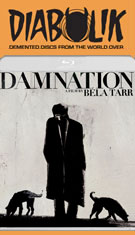
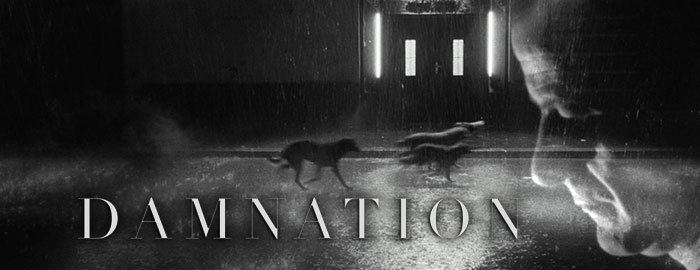
B&W, 1988, 121 mins. 16 secs.
Directed by Béla Tarr
Starring Miklós Székely B., Vali Kerekes, Hédi Temessy, Gyula Pauer, György Cserhalmi
Arbelos (Blu-ray) (US RA HD) / WS (1.66:1) (16:9), Facets (DVD) (US R1 NTSC)
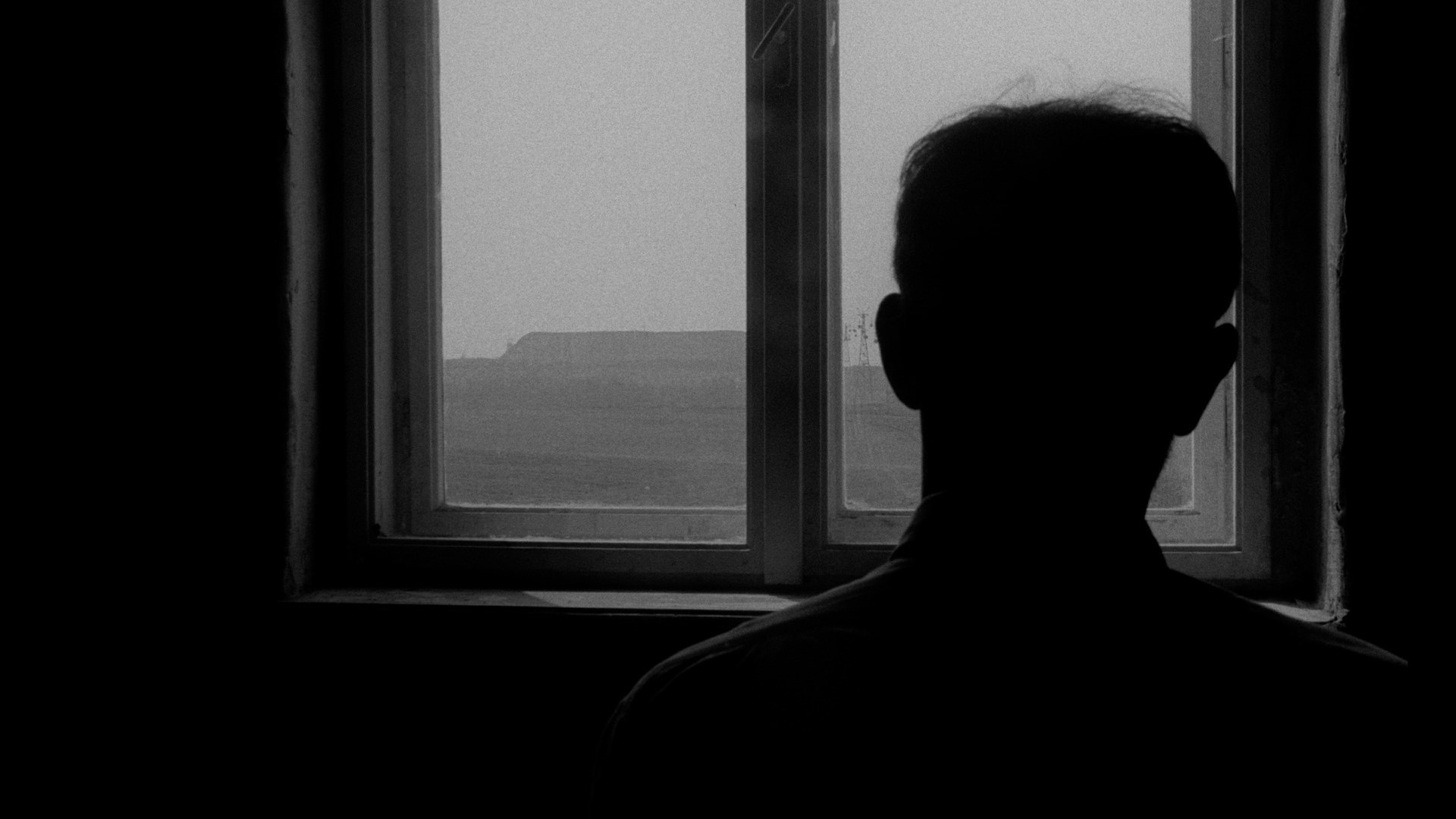 delivering one of filmmaker Béla
delivering one of filmmaker Béla 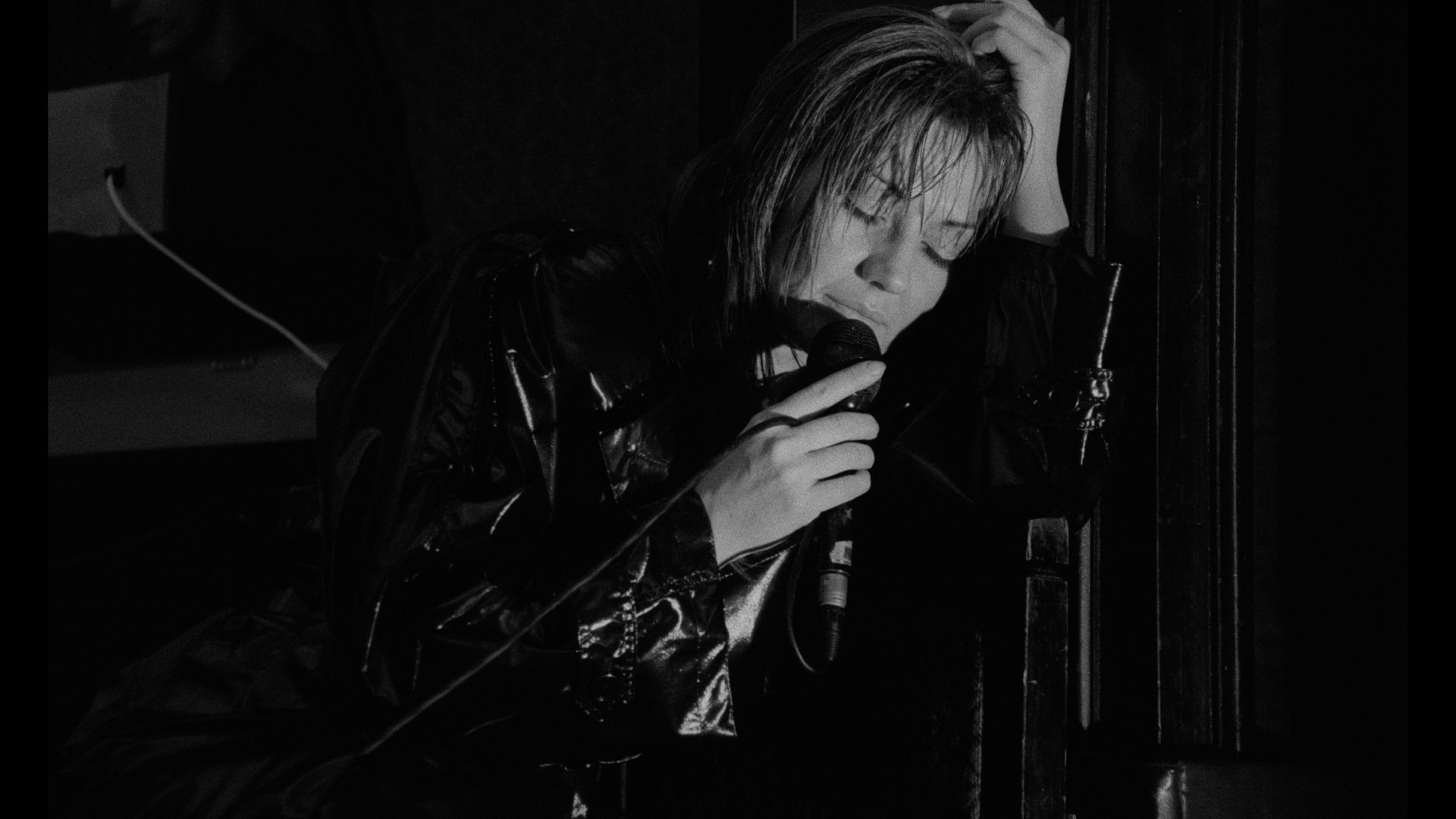 Tarr's masterpieces with Sátántangó on Blu-ray, Arbelos returns with his prior narrative feature: Damnation (Kárhozat), a much shorter and more noir-influenced look at lust and loneliness in a totalitarian Hungary. Now widely regarded as the film that really cemented Tarr's trademark style of astonishing monochrome images and audaciously long, static takes, the film bypassed significant U.S. distribution back in the day (and only got a lackluster DVD release in 2006) but finally gets a worthy release to fill a key part of his filmography here.
Tarr's masterpieces with Sátántangó on Blu-ray, Arbelos returns with his prior narrative feature: Damnation (Kárhozat), a much shorter and more noir-influenced look at lust and loneliness in a totalitarian Hungary. Now widely regarded as the film that really cemented Tarr's trademark style of astonishing monochrome images and audaciously long, static takes, the film bypassed significant U.S. distribution back in the day (and only got a lackluster DVD release in 2006) but finally gets a worthy release to fill a key part of his filmography here. 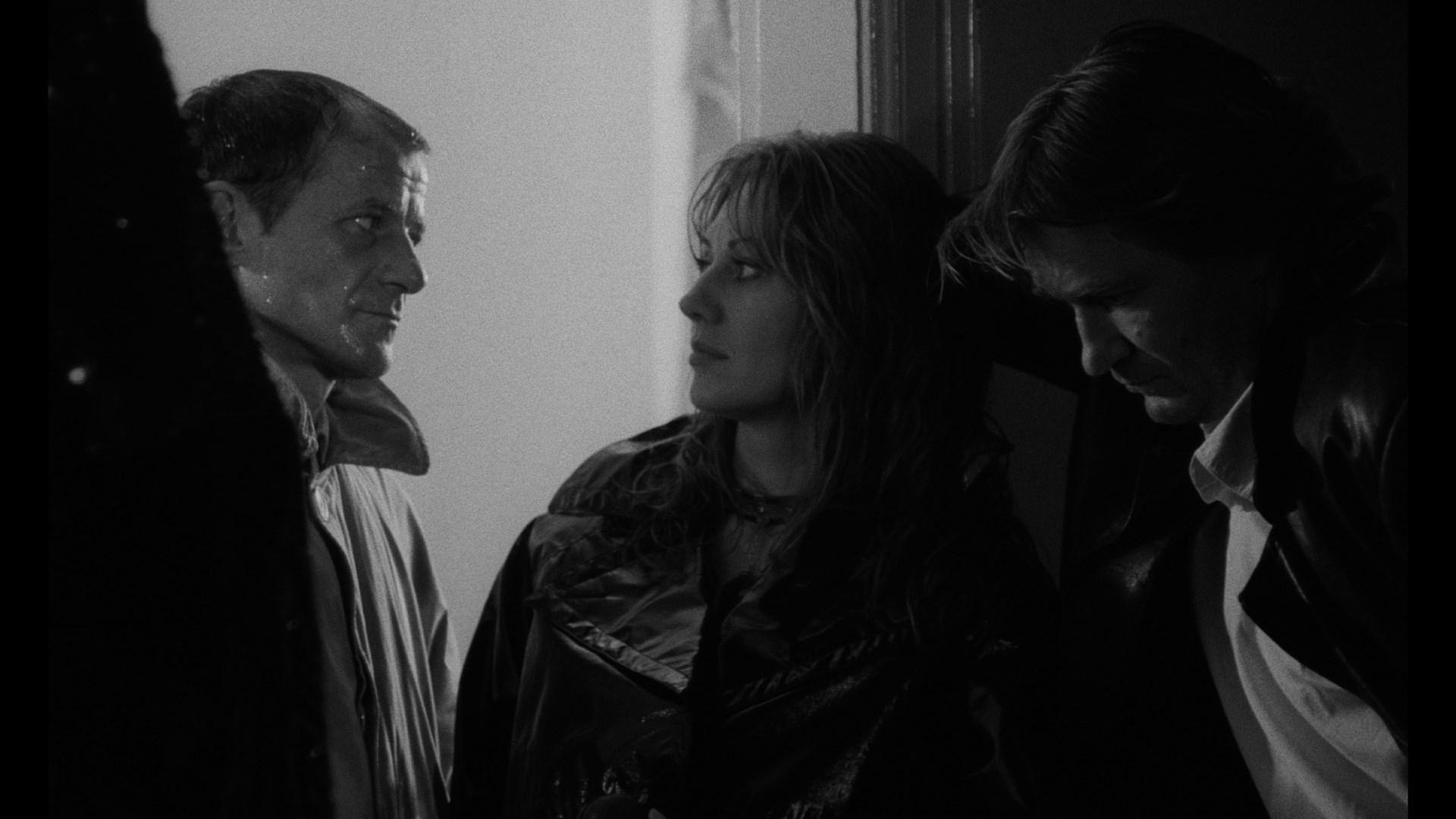 As with other Tarr films, the actual plot is almost incidental to the viewing experience thanks
As with other Tarr films, the actual plot is almost incidental to the viewing experience thanks  to a succession of immaculate shots that allow your eye to linger much longer than the average director. It's not an approach that will work for everyone, but by now Tarr's status is legendary enough that just about anyone who comes across this film will have a pretty good idea whether it will work for them. What makes this an excellent gateway film for newcomers is its relatively accessible storyline, which feels Fassbinder-style at times and has also drawn several comparisons to Tarkvosky. It's also a bit more energetic than some of Tarr's later films thanks to some musical interludes, though on the other hand it has what may be the least erotic treatment of sex and nudity depicted in the last few decades (on purpose).
to a succession of immaculate shots that allow your eye to linger much longer than the average director. It's not an approach that will work for everyone, but by now Tarr's status is legendary enough that just about anyone who comes across this film will have a pretty good idea whether it will work for them. What makes this an excellent gateway film for newcomers is its relatively accessible storyline, which feels Fassbinder-style at times and has also drawn several comparisons to Tarkvosky. It's also a bit more energetic than some of Tarr's later films thanks to some musical interludes, though on the other hand it has what may be the least erotic treatment of sex and nudity depicted in the last few decades (on purpose).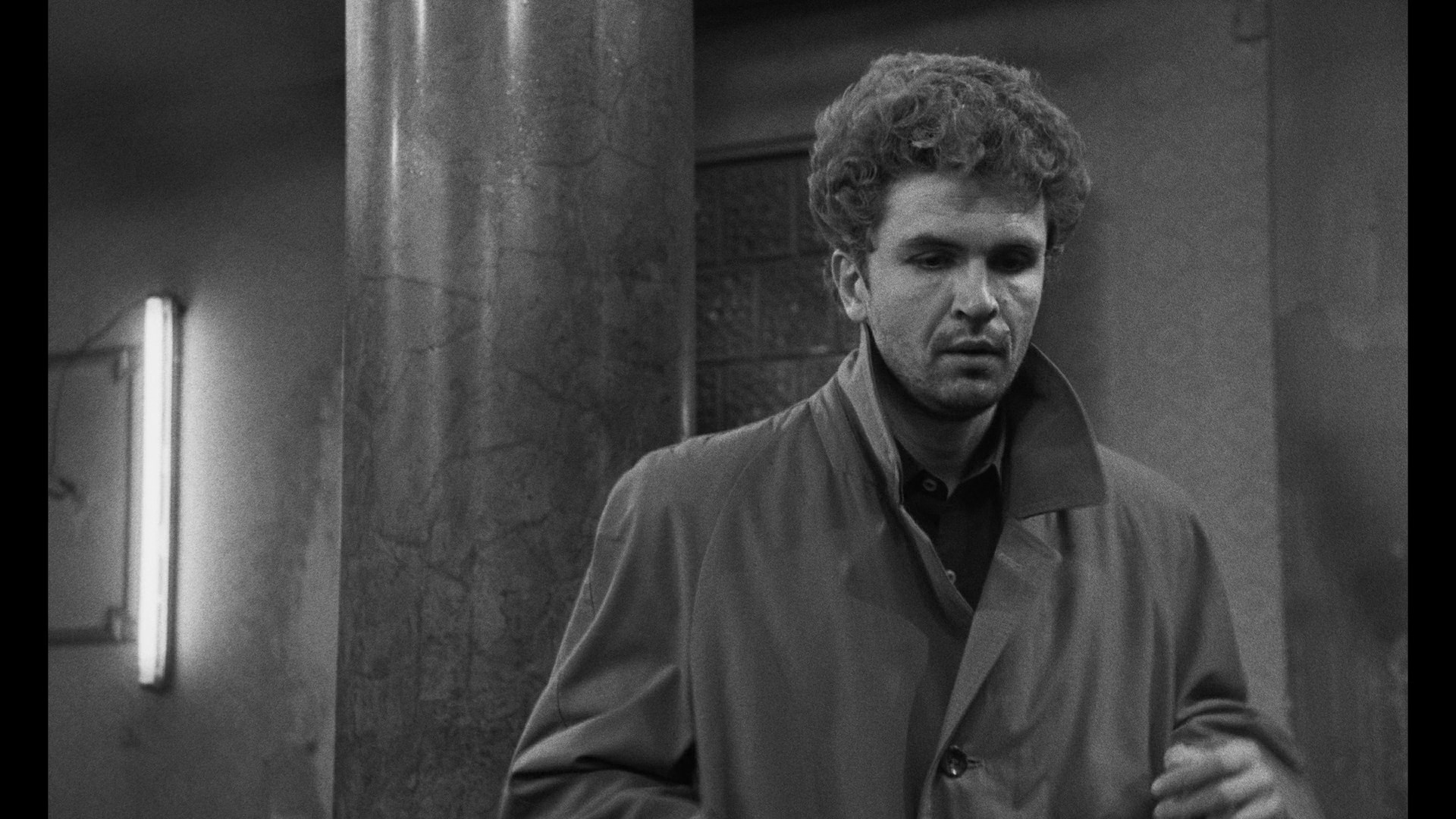 track is also in perfect condition and features optional (newly translated) English subtitles. A 2019 video interview with
track is also in perfect condition and features optional (newly translated) English subtitles. A 2019 video interview with 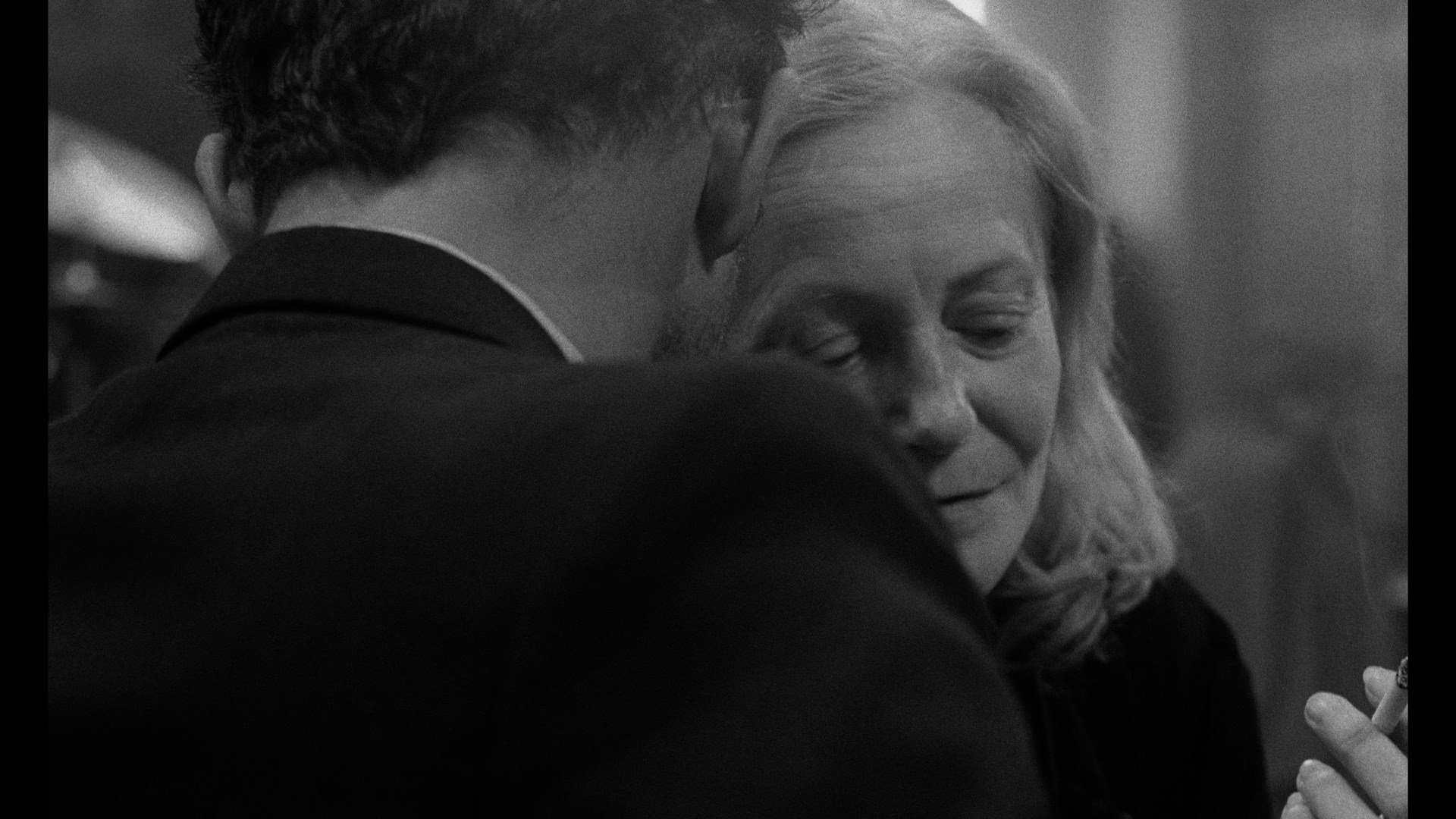 Tarr (10m27s) covers his general creative process, location scouting, the simple reason he shot in black-and-white, and his sorrow at the ascension of digital technology in filmmaking. Then a 2021 interview with Székely (11m47s) goes into his first student project with Tarr, his interpretation of the film and difficulty with the precision of some of the lines, and the unusual tactic his director took with him on this film. Finally composer Mihály Vig appears for a 2020 interview (13m49s) about his early music days, his bumpy first experience with Tarr, his "victory lap" hiring for Damnation, and the regular collaborators who all came aboard on this film including writer László Krasznahorkai. Also included are two brief vintage newsreels about Hungarian coal mines, 1954's External Coal Mining in Oroszlány (1m59s) and 1956's The Country Is Asking for Coal (2m16s) about Dorog, plus the new U.S. theatrical trailer. The package also comes with an insert booklet featuring a well-written essay by Jay Kuehner, "Disintegration & Revival," about the symbolic meaning behind the long takes, the film's commentary on bleak life at that time in Hungary, and its significance in what was yet to come from Tarr.
Tarr (10m27s) covers his general creative process, location scouting, the simple reason he shot in black-and-white, and his sorrow at the ascension of digital technology in filmmaking. Then a 2021 interview with Székely (11m47s) goes into his first student project with Tarr, his interpretation of the film and difficulty with the precision of some of the lines, and the unusual tactic his director took with him on this film. Finally composer Mihály Vig appears for a 2020 interview (13m49s) about his early music days, his bumpy first experience with Tarr, his "victory lap" hiring for Damnation, and the regular collaborators who all came aboard on this film including writer László Krasznahorkai. Also included are two brief vintage newsreels about Hungarian coal mines, 1954's External Coal Mining in Oroszlány (1m59s) and 1956's The Country Is Asking for Coal (2m16s) about Dorog, plus the new U.S. theatrical trailer. The package also comes with an insert booklet featuring a well-written essay by Jay Kuehner, "Disintegration & Revival," about the symbolic meaning behind the long takes, the film's commentary on bleak life at that time in Hungary, and its significance in what was yet to come from Tarr.![]()